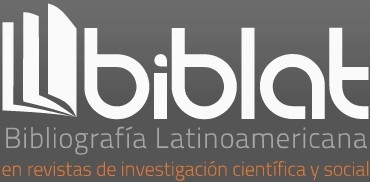The slowness of things. The place of alosemiotics in the heideggerian Reading of Georg Trakl
DOI:
https://doi.org/10.35494/topsem.2011.2.26.104Keywords:
-Abstract
This article analyzes a figure of slowness that appears in the
conference of Heidegger die Sprache. That figure is the lingering
of things. The purpose of the analysis lies in determining the
place of what Yuri Lotman terms as alosemiotic in the
heideggerian interpretation of the poetry of Georg Trakl Ein
Winterabend. The thesis to be developed is as follows: that which
is outside the semiotic boundary may only enter into the space
of sense through a bilingual translator. That translator
corresponds, in Heidegger’s thinking, to the concept of the world
as square (Geviert). The slowness of things describes one of the
semantic axes of the world.
Downloads
References
BERTORELLO, A. (2008a). El límite del lenguaje. La filosofía de Heidegger como teoría de la enunciación. Buenos Aires: Biblos.
___________ (2008b). “El lugar de la muerte en el problema de la significación. Una reflexión Apel y Heidegger”. En D. Michelini, Wolfgang Kuhlmann y Alberto Damiani (eds.). Ética del discurso y globalización. Corresponsabilidad solidaria en un mundo global e intercultural. Río Cuarto: Ediciones del ICALA, pp. 231-244.
___________ (2005). Semiosfera y Mundo: ensayo sobre un posible diálogo entre Lotman y Heidegger. Revista LSD: Lenguaje, Sujeto y Discurso [http://www.eyedeas.com.ar/portfolio/lsdrevista/len-guaje-sujeto-discurso-info.html], núm. 1, Buenos Aires, pp. 15-19.
___________ (2010). “Práxis e alosemiótico: a apropiação heideggeriana de tecnhe aristotélica como ponto de partida para a formação deconceitos ontológicos”. Mario Felig y José Francisco Dos Santos (eds.). A confrontação de Heidegger e Aristóteles. São Leopoldo/RS: Nova Harmonia, pp. 213-240.
DÄLLENBACH, L. (1991). El relato especular. Madrid: Visor.
HEIDEGGER, M. (1986) Sein und Zeit. Tübingen: Max Niemeyer.
___________ (1989). Die Grundprobleme der Phänomenologie. Frankfurt/ Main: Vittorio Klostermann.
___________ (1993). Grundprobleme der Phänomenologie. Frankfurt/Main: Vittorio Klostermann.
___________ (1995). Logik. Die Frage nach der Wahrheit, Frankfurt/Main, Vittorio Klostermann.
___________ (1997). Unterwegs zur Sprache. Stuttgart: Neske.
TRAKL, G. (1992). Obra poética. Buenos Aires: Torres Agüero Editor [Trad. de Rodolfo Modern).
___________ (2001). Das Dichterische Werk. München: DTV.
RÉCANATI, F. (1981). La transparencia y la enunciación. Buenos Aires: Edicial.
SAER, J. J. (1998). La mayor. Buenos Aires: Seix Barral.
SEMBERA, R. (2002). Unterwegs zum Abend-Lande. HeideggersSprachweg zu Georg Trakl, Inaugural-Dissertation zur Erlangungder Doktorwürde der Philosophischen Fakultäten der Albert-Ludwigs-Universität zur Freiburgi. Br. [http://www.freidok.unifreiburg.de/volltexte/848/].
Downloads
Published
How to Cite
Issue
Section
License

Tópicos del Seminario is licensed under a Creative Commons Reconocimiento-NoComercial-CompartirIgual 4.0 Internacional License.














